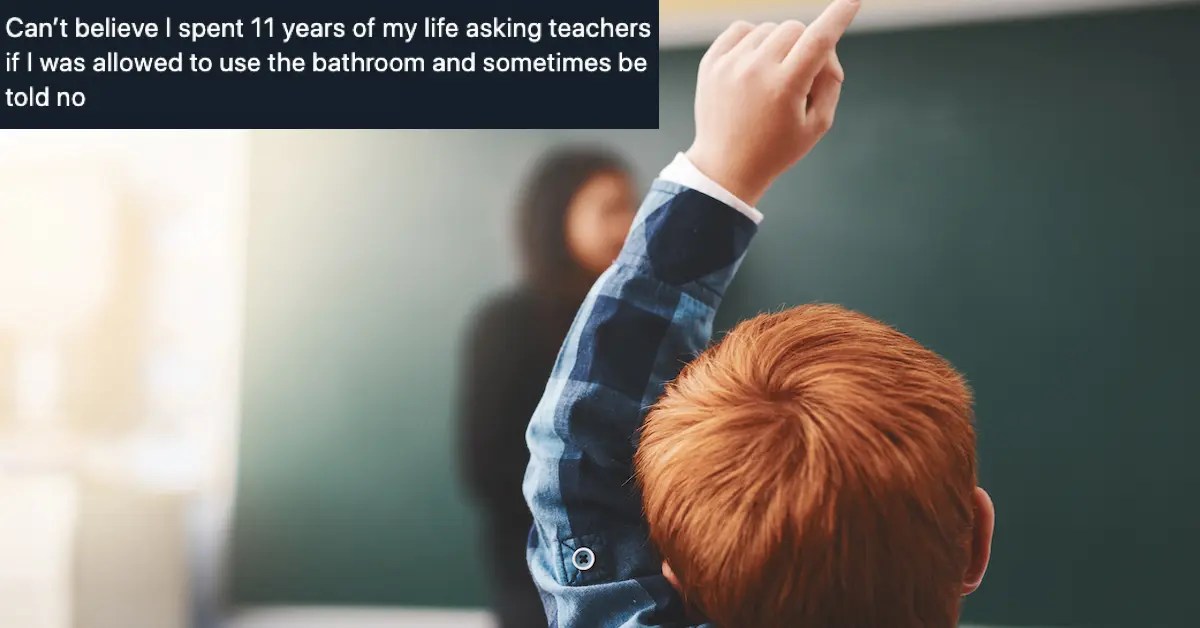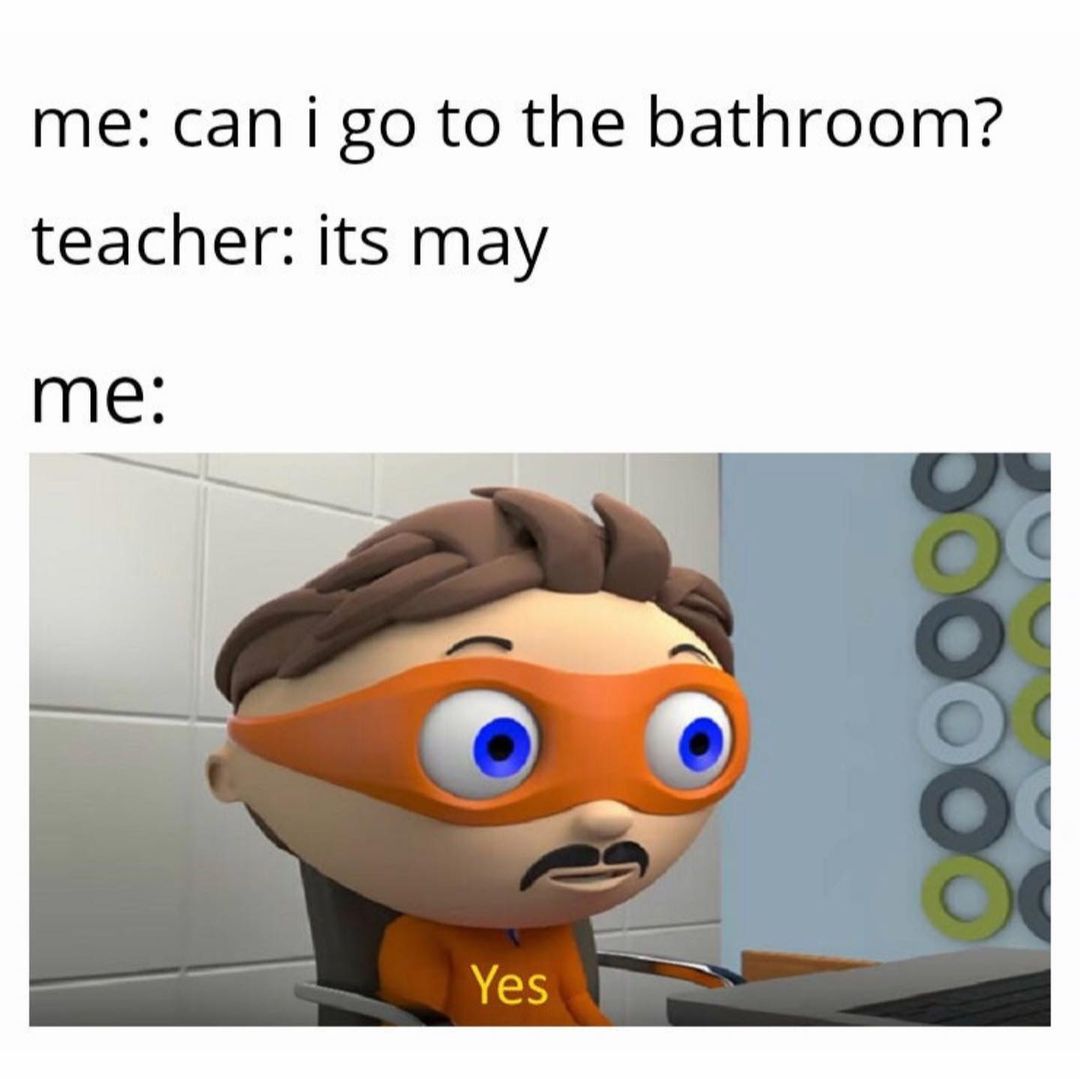Can A Teacher Say No To The Bathroom
The answer may surprise you.
Every child has the basic human need to use the restroom. Yet, there are times when children may be denied this right by their teachers. This can be a frustrating and humiliating experience for a child, and it can also lead to health problems if the child is forced to hold their urine or feces. There are several reasons why a teacher might say no to a child who asks to use the bathroom. They may be concerned that the child will miss important instruction, or they may simply not want to be interrupted. However, there are also laws in place that protect children's right to use the bathroom.
In most states, it is illegal for a teacher to deny a child's request to use the bathroom. These laws are in place to protect children's health and well-being. Forcing a child to hold their urine or feces can lead to a number of health problems, including urinary tract infections, constipation, and dehydration.
There are some exceptions to this rule. For example, a teacher may be able to deny a child's request to use the bathroom if the child has a history of misusing the privilege. However, in most cases, teachers are required to allow children to use the bathroom when they need to.
If your child has been denied the right to use the bathroom, you should talk to the teacher and/or the principal. You can also file a complaint with the state education department.
Can a Teacher Say No to the Bathroom?
Understanding the essential aspects of "can a teacher say no to the bathroom" is crucial for safeguarding children's rights and well-being. These aspects encompass legal implications, educational policies, developmental needs, and health considerations.
- Legal Protections: Laws prohibit teachers from unreasonably denying bathroom requests.
- Health Implications: Holding urine can lead to urinary tract infections, while withholding feces can cause constipation.
- Developmental Needs: Young children have smaller bladders and limited control, requiring frequent bathroom breaks.
- Classroom Management: Teachers must balance bathroom requests with instructional time.
- Student Privacy: Students have the right to use the bathroom without undue scrutiny.
- Discrimination: Teachers cannot deny bathroom access based on disability or other protected characteristics.
- Teacher Discretion: Teachers have some discretion to manage bathroom requests, but must prioritize student health and rights.
- School Policies: Schools may have specific policies regarding bathroom use, which teachers must follow.
- Student Responsibility: Students should use bathroom breaks appropriately and avoid excessive requests.
- Parent Communication: Open communication between teachers and parents can help address concerns and ensure timely bathroom access.
These aspects are interconnected and impact each other. For instance, legal protections ensure that students' health needs are met, while classroom management strategies consider developmental needs and minimize disruptions. By understanding these essential aspects, educators, parents, and policymakers can work together to create a supportive environment where students' bathroom needs are respected and their well-being is prioritized.
Can a Teacher Deny a Student's Request to Use the Bathroom?
In most cases, the answer is no. Students have a fundamental right to use the bathroom when they need to, and teachers cannot unreasonably deny this request. This right is protected by both federal and state laws.
What are the Exceptions to the Rule?
There are a few exceptions to the rule that teachers cannot deny a student's request to use the bathroom. For example, a teacher may be able to deny the request if the student has a history of abusing the privilege, or if the student is asking to use the bathroom during a test or other important activity. However, these exceptions are narrow, and teachers must be careful not to abuse their discretion.
What Should You Do if Your Child's Teacher Denies Their Request to Use the Bathroom?
If your child's teacher denies their request to use the bathroom, you should talk to the teacher about it. If the teacher does not have a valid reason for denying the request, you may want to file a complaint with the school administration.
The Importance of Bathroom Access for Students
Access to bathrooms is essential for students' health and well-being. When students are denied access to bathrooms, they may experience a number of health problems, including urinary tract infections, constipation, and dehydration. In addition, denying students access to bathrooms can lead to anxiety, stress, and embarrassment.
How Teachers Can Support Students' Bathroom Needs
Teachers can support students' bathroom needs by:
- Allowing students to use the bathroom when they need to
- Not making students feel ashamed or embarrassed for using the bathroom
- Providing students with easy access to bathrooms
- Creating a bathroom schedule that allows students to use the bathroom at regular intervals
Conclusion
Students have a fundamental right to use the bathroom when they need to. Teachers cannot unreasonably deny this request. Access to bathrooms is essential for students' health and well-being. Teachers can support students' bathroom needs by allowing them to use the bathroom when they need to, not making them feel ashamed or embarrassed for using the bathroom, providing them with easy access to bathrooms, and creating a bathroom schedule that allows students to use the bathroom at regular intervals.
This article thoroughly explored the topic of "can a teacher say no to the bathroom," examining its legal, educational, developmental, and health implications. Key points discussed include:
- Students have a fundamental right to use the bathroom when they need to, protected by federal and state laws.
- Teachers cannot unreasonably deny a student's request to use the bathroom, with limited exceptions such as abuse of the privilege or during crucial activities.
- Access to bathrooms is vital for students' health and well-being, preventing problems like urinary tract infections, constipation, and dehydration.
Ultimately, the article emphasizes the significance of respecting students' bathroom needs. By allowing timely access, maintaining privacy, and creating supportive environments, educators foster a conducive learning atmosphere where students' physical and mental well-being is prioritized. It is imperative for schools and educators to recognize and uphold this fundamental right, ensuring that all students have equitable access to bathroom facilities.
Kittynobi Leak: Protect Yourself From The Devastating Cyberattack
Is Stephen A. Smith Married: Unraveling The Mystery
Lookingformargot Onlyfans

It's Wild That Teachers Used to Tell Kids They Couldn't Use the Bathroom

Me Can I go to the bathroom? Teacher Why didn't you go during break

Me Can I go to the bathroom? Teacher its may. Me Yes. Funny
ncG1vNJzZmirlaG5qrrGZ6qfp2JjsaqzyK2YpaeTmq6vv8%2Bamp6rXpi8rnvCmqVmmV2psqKvx56pZquRrnqvu4ytpmasmJp6o63Toamop51jtbW5yw%3D%3D